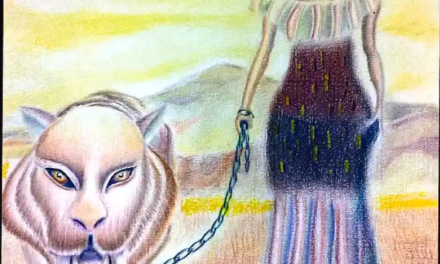Letter from the Editor
by Stefani Cox
Issue 10: Afrofuturism
Whew. What a year, folks.
It’s been both an honor and a necessity to develop this special Winter issue of Speculative City as a guest editor alongside Meera Velu. Selecting and editing pieces by all-Black authors under the theme of Afrofuturism was a sustaining endeavor, a touchpoint that kept me moving and believing through challenging times.
This letter comes to you after a sobering year of continued violence against Black bodies, as well as a fierce outcry against such injustice. We would be remiss not to center the lives of Breonna Taylor, George Floyd, Ahmaud Arbery, Tony McDade, and countless other voices taken too soon as we introduce this issue.
Afrofuturism is a tricky term to define, and perhaps the attempt to pin it down in the first place is contrary to its aims. However you think of the word, Afrofuturistic work validates and mirrors the wide spectrum of Black experiences and seeks to reenvision and project toward alternate worlds.
We see this wild imagination in LP Kindred’s “Open 27 Hours,” where a young woman searches for an illusive and otherworldly cuisine that evokes a deep sense of home and connection. Fleur Lyamuya’s “Territorial” shows us the risks one is willing to take for love and freedom as a tech-controlled undercover operative navigates an unexpected relationship with her target. In “Avenging the Daughter of God,” by Gary Earl Ross, we experience the anguish of losing a daughter to racist violence and the dogged pursuit of revenge under the aid of a scientific breakthrough. And Lush Horizon’s story “Those Who Remembered” takes us into a visionary exploration of community, ancestral memory, and survival, as a family clan works to make it through an epic flood and build a more inclusive and hopeful society.
The two poems for this issue, jamika ajalon’s “TRANSMISSION 33 (aka Replikant)” and Donald “C-Note” Hooker’s “Journey to Afrofuturism,” set the perfect tone for this conglomeration of stories. In addition, Woody Dismuke’s essay, “Afrofuturism, Utopia, and the Prospect of a Better Now,” shows us the real-world messiness of constructing new futures and reminds us of the perpetual inspiration of young minds.
The diverse voices of this issue are framed by a delightful, sci-fi cover from artist and writer Jacqueline Barnes.
We thank you for reading as we hurtle toward a new year. Whatever 2021 and beyond brings, we hope that you never stop speculating.




